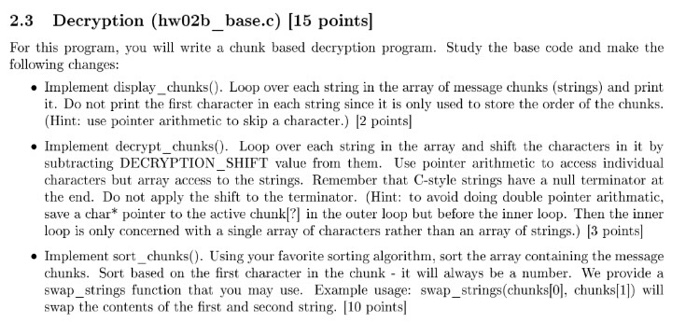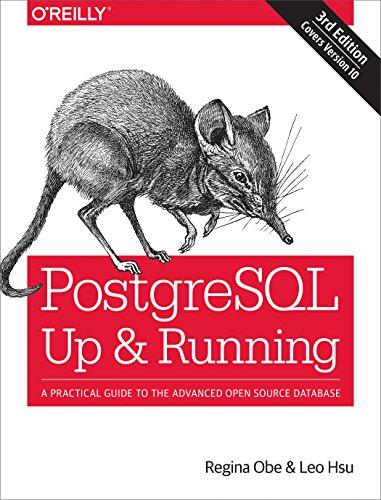Answered step by step
Verified Expert Solution
Question
1 Approved Answer
//////////////////////////////////////////////////////////////////////////////// //INCLUDES #include #include //macros: constants #define CHUNK_LENGTH (20+1) //each chunk has twenty characters, we add 1 so //there is space for the null terminator.

////////////////////////////////////////////////////////////////////////////////
//INCLUDES
#include
#include
//macros: constants
#define CHUNK_LENGTH (20+1) //each chunk has twenty characters, we add 1 so
//there is space for the null terminator.
#define NUMBER_OF_CHUNKS 4 //the message is spread across 4 chunks.
#define DECRYPTION_SHIFT 5 //this is the ASCII table shift used for decryption.
//forward declarations
void sort_chunks();
void decrypt_chunks();
void display_chunks();
char chunks[NUMBER_OF_CHUNKS][CHUNK_LENGTH];
int main() {
//copy message into memory.
strcpy(chunks[0], "2i1%fsi%fs%jstwrtzx%");
strcpy(chunks[1], "1'H%nx%vznwp~1%kqf|j");
strcpy(chunks[2], "4R3%Wnyhmnj%%%%%%%%%");
strcpy(chunks[3], "3xzhhjxx3'%2%Ijssnx%");
//the format of a chunk is a single number indicating its order in overall
//message followed by twenty encrypted characters.
//reorder chunks in message by sorting them based on the first digital
//they contain. looking above, one can see they are currently in the order
//2, 1, 4, 3 but should be ordered 1, 2, 3, 4.
sort_chunks();
//shift the characters in the message to produce the original characters.
decrypt_chunks();
//display the decrypted message.
display_chunks();
return 0;
}
//given two strings, swaps their contents in memory.
void swap_strings(char* x, char* y) {
//create a temporary holding place for the data so we don't lose it.
char temp[CHUNK_LENGTH];
strcpy(temp, x);
strcpy(x, y);
strcpy(y, temp);
}
//sorts the strings the global chunks variable by the first character they contain.
void sort_chunks() {
//TODO: Implement sort_chunks(). Using your favorite sorting algorithm (we
// suggest selection sort), sort the array containing the message chunks.
// Sort based on the first character in the chunk - it will always be a
// number. We provide a swap_strings function that you may use. Example
// usage: swap_strings(chunks[0], chunks[1]) will swap the contents of
// the first and second string.
}
//for each string in the global chunks variable, shifts the characters in it by
//DECRYPTION_SHIFT.
void decrypt_chunks() {
//TODO: Implement decrypt_chunks(). Loop over each string in the array
// and shift the characters in it by subtracting DECRYPTION_SHIFT value
// from them. Use pointer arithmetic to access individual characters but
// array access to the strings. Remember that C-style strings have a null
// terminator at the end. Do not apply the shift to the terminator.
// (Hint: to avoid doing double pointer arithmatic, save a char* pointer
// to the active chunk[?] in the outer loop but before the inner loop.
// Then the inner loop is only concerned with a single array of
// characters rather than an array of strings.)
}
//displays the strings in the global chunks variable
void display_chunks() {
//TODO: Implement display_chunks(). Loop over each string in the array of
// message chunks (strings) and print it. Do not print the first
// character in each string since it is only used to store the order of
// the chunks. (Hint: use pointer arithmetic to skip a character.)
}
Step by Step Solution
There are 3 Steps involved in it
Step: 1

Get Instant Access to Expert-Tailored Solutions
See step-by-step solutions with expert insights and AI powered tools for academic success
Step: 2

Step: 3

Ace Your Homework with AI
Get the answers you need in no time with our AI-driven, step-by-step assistance
Get Started


